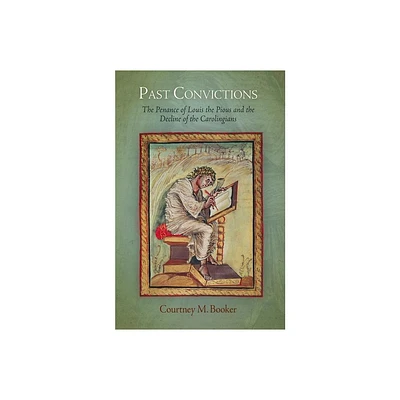Home
Past Convictions: The Penance of Louis the Pious and the Decline of the Carolingians
Loading Inventory...
Barnes and Noble
Past Convictions: The Penance of Louis the Pious and the Decline of the Carolingians
Current price: $89.95


Barnes and Noble
Past Convictions: The Penance of Louis the Pious and the Decline of the Carolingians
Current price: $89.95
Loading Inventory...
Size: OS
*Product Information may vary - to confirm product availability, pricing, and additional information please contact Barnes and Noble
How do people, in both the past and the present, think about moments of social and political crisis, and how do they respond to them? What are the interpretive codes by which troubling events are read and given meaning, and what part do these codes play in suggesting specific strategies for coping with the world? In
Past Convictions
Courtney Booker attempts to answer these questions by examining the controversial divestiture and public penance of Charlemagne's son, the Emperor Louis the Pious, in 833.
Historians have customarily viewed the event as marking the beginning of the end of the Carolingian dynasty. Exploring how both contemporaries and subsequent generations thought about Louis's forfeiture of the throne, Booker contends that certain vivid ninth-century narratives reveal a close but ephemeral connection between historiography and the generic conventions of comedy and tragedy. In tracing how writers of later centuries built upon these dramatic Carolingian accounts to tell a larger story of faith, betrayal, political expediency, and decline, he explicates the ways historiography shapes our vision of the past and what we think we know about it, and the ways its interpretive models may fall short.
Past Convictions
Courtney Booker attempts to answer these questions by examining the controversial divestiture and public penance of Charlemagne's son, the Emperor Louis the Pious, in 833.
Historians have customarily viewed the event as marking the beginning of the end of the Carolingian dynasty. Exploring how both contemporaries and subsequent generations thought about Louis's forfeiture of the throne, Booker contends that certain vivid ninth-century narratives reveal a close but ephemeral connection between historiography and the generic conventions of comedy and tragedy. In tracing how writers of later centuries built upon these dramatic Carolingian accounts to tell a larger story of faith, betrayal, political expediency, and decline, he explicates the ways historiography shapes our vision of the past and what we think we know about it, and the ways its interpretive models may fall short.








